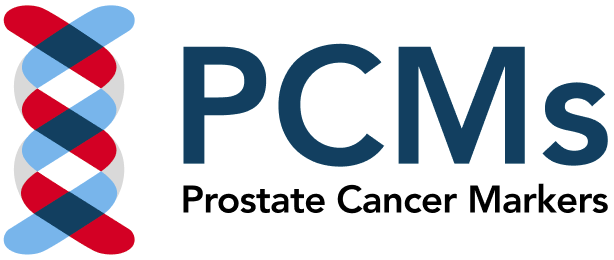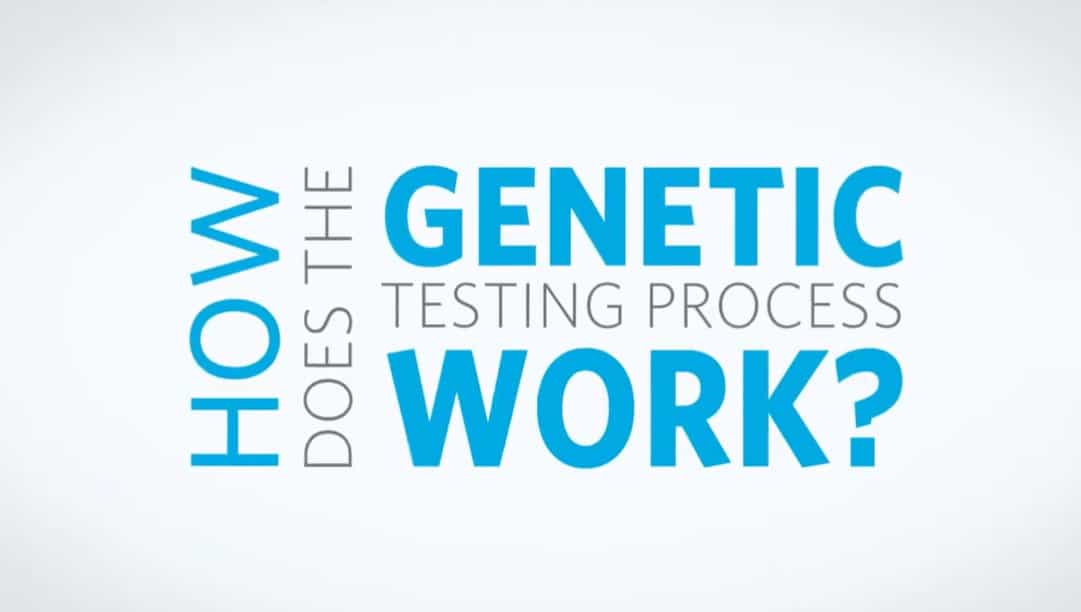What is the ProstateNext genetic test?
ProstateNext® is a genetic test that analyzes 14 genes associated with hereditary prostate cancer.
ProstateNext, conducted with a blood or saliva sample, can help men and their healthcare provider:
- Determine when to start prostate cancer screening tests and how often the tests should be repeated
- Identify at-risk family members
- Suggest measures to reduce the patient’s individual risk of developing prostate cancer
- Tailor treatment to the patient if he develops prostate cancer
Of the 14 genes reviewed in the ProstateNext test are BRCA1 and BRCA2 (known as breast cancer predisposition genes). These genes, when mutated, have been shown to be associated with a 15% lifetime risk of developing prostate cancer, which is significantly higher than the average risk
ProstateNext Video
Learn more about the ProstateNext test, which assesses a patient’s risk for hereditary prostate cancer.
Understanding Your ProstateNext Results
The ProstateNext test is a genetic test that can be effective in determining a person’s risk of developing hereditary prostate cancer. See a sample ProstateNext result report and learn more about how to interpret these results. Please note that all ProstateNext test results should always be discussed with a healthcare provider or genetic counselor first.
ProstateNext FAQs
Below is an initial list of frequently asked questions about the ProstateNext test.
Although there are many factors that contribute to your healthcare provider’s decision to conduct a prostate biopsy, there are several urinary and blood based PCMs that may help guide you and your physician through the decision of conducting a prostate biopsy. These include:
Genetic tests also may be worth considering if you have a family history of prostate cancer, breast cancer, ovarian cancer or colorectal cancer. These genetic tests are recommended for men who are determined through genetic counseling to be at potential risk for hereditary cancer:
The ProstateNext test should be considered for men who
- Are diagnosed with prostate cancer before the age of 50
- Have metastatic prostate cancer (at any age)
- Have multiple primary cancers (e.g. prostate and male breast cancer)
- Have a personal history of prostate cancer and more than 1 family members* with early-onset breast cancer (under the age of 50) and/or invasive ovarian cancer
- Have a personal history of prostate cancer and >2 family members* with breast, pancreatic, or prostate cancer
*Family members are on the same side of the family.
If you answer “Yes” to any of the questions below, you may want to consider talking to your healthcare provider about hereditary cancer genetic testing.
- Have you or your family members been diagnosed with:
- cancer at a young age (younger than 50 years old)?
- more than one cancer?
- cancers you’ve been told are usually rare, such as ovarian or pancreatic cancer?
- Do you have multiple people on the same side of your family who have had or have cancer?
- Have any of your family members been found to have a cancer gene mutation?
The ProstateNext test requires a non-invasive sample of blood or saliva. The test kit is sent directly to your healthcare provider. Results from the ProstateNext test are sent directly to your healthcare provider, who will then review the results with you during a scheduled appointment.
Results from your genetic tests will fall into one of three categories:
Positive
- A mutation related to an inherited cancer has been found in at least one of your tested genes.
- A positive result confirms an increased risk for an inherited cancer. This information may be used to inform decisions you and your healthcare provider make about your medical care.
- A positive result also indicates there may be up to a 50/50 random chance that each of your children, brothers, sisters, and parents has this same mutation. This means, that like you, they are at increased risk to develop the cancer linked to your mutation and should consider genetic testing.
Negative
- No cancer-linked genetic mutations were found in any of your tested genes.
- Since inherited disease risk(s) and management recommendations are based on personal and family history as well as genetics, you will want to discuss next steps with your healthcare provider.
- Despite your negative result, genetic testing may be advisable for family members depending on their health history.
Variant of unknown significance
- At least one genetic mutation was found, but it is unclear if this mutation causes an increased risk for an inherited cancer.
- Your next steps should be determined by your personal and family history.
- As more genes are researched and additional testing becomes available, your results may change over time. This means that your variant of unknown significance could become known. It’s impossible to predict when this might happen though.
The ProstateNext test analyzes a blood or saliva sample to provide a full gene sequencing and looks for the deletion/duplication of 14 genes (including BRCA1 and BRCA2).
Test results for ProstateNext are presented in the following fashion (please note that you should always consult with your healthcare provider when reviewing test results):
- Positive: A mutation was found in at least one of your genes tested. Your risk of developing prostate cancer may be at increased risk compared to others.
- Negative: No mutations were found in any of your genes tested.
- Variant of unknown significance (VUS): At least one genetic change was found, but it is not clear if this may lead to an increased risk of cancer.
See a sample ProstateNext test result report and learn more about how to interpret them.
Patients who undergo genetic testing in the U.S. are protected by the Genetic Information Nondiscrimination Act (2008). This prohibits employers and health insurance companies to use genetic testing results to discriminate against people.
While genetic testing is your personal information, the results can have a significant impact on your family. You should work with your healthcare provider if you are unsure how to share information with your family.
Learn More
Explore more information about the ProstateNext genetics test.


